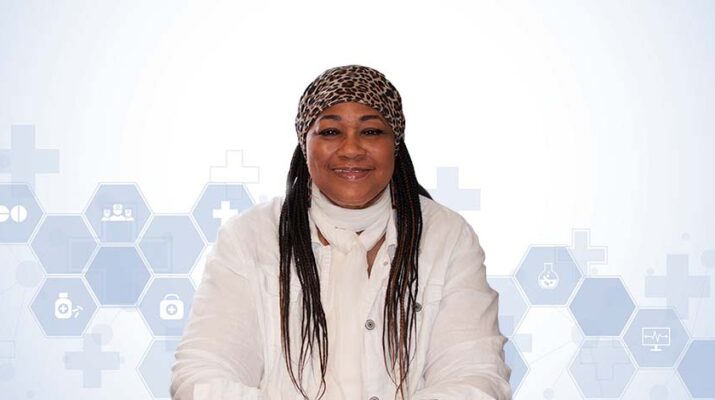By Mike Costanza
Meeting the basic needs of the community is main mission of Cameron Community Ministries, says its executive director
Since it was created in 1984 to serve free breakfasts to hungry children and seniors, Cameron Community Ministries has grown into a multifaceted nonprofit that offers a wide range of services to needy youths, teenagers and adults. All can head to its Cameron Street campus for free hot lunches, food and clothing. A social worker is on hand to advocate for and assist the nonprofit’s clients, or “guests” and the nonprofit’s computers stand ready to provide internet access. Cameron has offered programs on how to grow nutritious produce in soil and will soon offer a class in hydroponic gardening. Its Peace Garden offers a respite from the pressures of city living.
Cameron has just 11 part- and full-time employees, about 120 active volunteers and a current budget of just $627,000.
Though many of its guests live in the Lyell-Otis neighborhood, the nonprofit is willing to assist anyone living in the Rochester area. It served 19,000 children and adults in 2021 alone.
Olivia Kassoum-Amadou, Cameron Community Ministries executive director, spoke to In Good Health about her organization’s aims, assets and challenges.
Q: What is the mission of Cameron Community Ministries, in brief?
A: We’re meeting the basic needs of the community. Everyone needs to have food, they need to have shelter, they need clothing and they need advocacy and support. We have hot lunches every [week] day. When people move into their new apartments or houses, we have a move-in bag that we give with household cleaning supplies and a mop, broom and bucket. For us to provide those [services] free of charge for the community is really meaningful. We know that we’re making a difference in the lives of so many people.
Q: Why is it important for Cameron to provide classes in gardening and nutrition?
A: The Lyell Otis community is a food desert, meaning it lacks access to fresh fruits and vegetables. Cameron is working with the community to show them how to grow their own food and to prepare nutritious meals.
Q: One of your gardening programs is called “Seeds for Supper.” Can you tell us about it?
A: It’s very popular program. For about six weeks we have Cornell Cooperative Extension come in each Saturday to teach classes for people new to gardening or who have some experience with it. They tell them how to grow food even if they have a limited budget. Most of our population would fit in there. They also talk about food literacy, being resilient with their food and how you can connect with other community members in gardening. People then go out to our Peace Garden to plant some of the herbs and vegetables that they learned about. They can harvest the food and take them home to prepare them for their own meals.
Q: Another of your programs, “Cameron Crops,” teaches children and teens how to garden in a novel way—hydroponically. Can you give us a few details of the program?
(Note: hydroponics, in a nutshell, is a type of horticulture that involves growing plants not in soil, but in a solution of water and mineral nutrients.)
A: That’s an exciting program that we have with the Hoekelman Center [part of the Golisano Children’s Hospital]. It’s going to teach our young people an alternative way to grow food. We’ll actually set up the hydroponic system. The Cornell [Cooperative Extension] has a controlled environment hydroponic consultant, who we will call upon to advise us on the design and teach the kids how to care for and operate the hydroponic system. Pediatric residents will teach the kids about the hydroponic process of growing.
Q: What will the program entail?
There’s the educational piece, the growing part, nutrition classes and cooking classes. When the plants are ready, the students will harvest the plants, then learn how to prepare meals using some of the crops they’ve grown. The program will begin when the Rochester City School District’s classes start in September and go through the school year.
Q: Cameron just opened its AT&T Digital Learning Center. What kinds of services will it provide?
A: We’re trying to do our part to narrow the digital learning gap among community residents. We have 18 computers, including laptops and MacBooks. People can come in and have Internet access, attend basic computer classes and more.
Q: What challenges does Cameron face in the coming year?
A: We are out of space here at Cameron for staff offices and all of our program numbers have gone up. With the economy being the way that it is, we don’t anticipate those numbers leveling off or going down anytime soon. We are also interested in having a drop-in center for our adults. This drop-in center would be a place where community members in need could come in, take a shower, do laundry, receive a hot lunch and make use of other services.
For more information on Cameron Community Ministries and its programs, go to https://cameronministries.org

